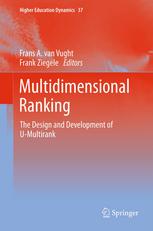

Most ebook files are in PDF format, so you can easily read them using various software such as Foxit Reader or directly on the Google Chrome browser.
Some ebook files are released by publishers in other formats such as .awz, .mobi, .epub, .fb2, etc. You may need to install specific software to read these formats on mobile/PC, such as Calibre.
Please read the tutorial at this link: https://ebookbell.com/faq
We offer FREE conversion to the popular formats you request; however, this may take some time. Therefore, right after payment, please email us, and we will try to provide the service as quickly as possible.
For some exceptional file formats or broken links (if any), please refrain from opening any disputes. Instead, email us first, and we will try to assist within a maximum of 6 hours.
EbookBell Team

0.0
0 reviewsDuring the last decades ranking has become one of the most controversial issues in higher education and research. It is widely recognized now that, although some of the current rankings can be severely criticized, they seem to be here to stay. In addition, rankings appear to have a great impact on decision-makers at all levels of higher education and research systems worldwide, including in universities. Rankings reflect a growing international competition among universities for talent and resources; at the same time they reinforce competition by their very results. Yet major concerns remain as to the rankings' methodological underpinnings and to their various impacts.
This new book presents a comprehensive overview of the current ‘state of the art’ of ranking in higher education and research, and introduces a completely new approach called ‘multidimensional ranking’. In part 1 rankings are discussed in the broader context of quality assurance and transparency in higher education and research. In addition the many current ranking methodologies are analyzed and critized, and their impacts are explored. In part 2 a new approach to ranking is introduced, based on the basic idea that higher education and research institutions have different profiles and missions and that the performances of these institutions should reflect these differences. This multidimensional approach is operationalized in a new multidimensional and user-driven ranking tool, called U-Multirank. U-Multirank is the outcome of a pilot project, sponsored by the European Commission, in which the new ranking instrument was designed and tested at a global scale.